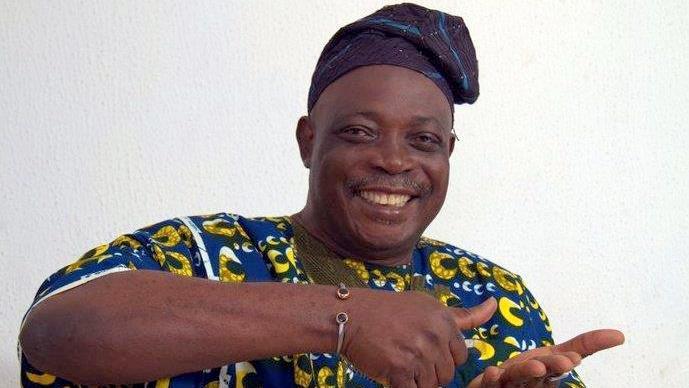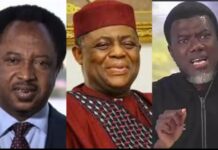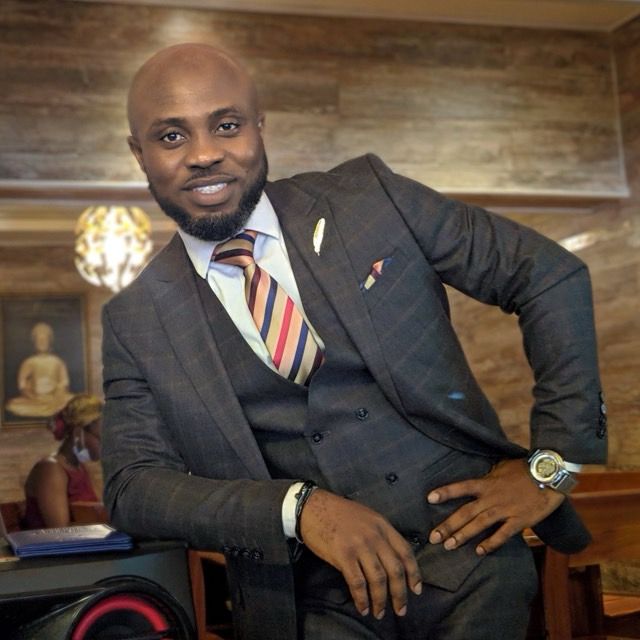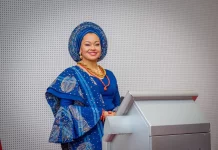By Onyewuchi Ojinnaka
“The prosecution was not consistent in the amount of money allegedly missing in the sale of Oyo State’s Shares. These contradictions were not explained during the trial.
“The highest burden of proof before getting to ‘beyond reasonable doubt’ is of course clear and convincing evidence. The case of prosecution is too low on credible evidence.
“The failure on the part of prosecution to prove even only one count of several ingredients of an offence means it has failed to prove the guilt of the offence beyond all reasonable doubt.”
Those words were some reasons adduced by Justice Mohammed Idris in his judgement read at a Federal High Court, Lagos Nigeria on Friday which discharged and acquitted former Oyo State governor Chief Rasheed Ladoja in the N4.7billion fraud charge filed against him by the Economic and Financial Crimes Commission (EFCC) 11 years ago.
Justice Idris, who was elevated to the Court of Appeal last June but concluded the 11-year old trial through a fiat, held that the prosecution (EFCC) failed to prove its case beyond reasonable doubt and therefore, he found Ladoja and his co-accused not guilty in all the counts.
He faulted the prosecution’s handling of the case, saying that EFCC shielded the main culprits from prosecution while meting “absolute injustice” to the defendants.
Specifically, the judge held that the prosecution led by Festus Keyamo (SAN) who later handed the matter over to his junior, Olabisi Olufemi failed to prove a single ingredient of the 11-count charge.
It should be noted that Justice Idris was the third judge to adjudicate on the case after Justices I.M Sanni and A.R. Mohammed.
The case went up to the Supreme Court due to interlocutory appeals filed by Ladoja but he lost the appeals and the matter was referred back to High Court for his trial to continue.
In November 5, 2018, the Economic and Financial Crimes Commission (EFCC) re-arraigned Ladoja with his former Commissioner for Finance Waheed Akanbi on an amended charge of 11 counts bordering on money laundering and unlawful conversion of N4.7billion state funds.
In the amended charge, EFCC alleged that Ladoja “compelled” a broker to sell the State’s shares and converted it to personal use instead of remitting N1.9billion realised from the sale to the state.
But in the judgement delivered by Justice Idris on the case on Friday February 8, 2019, he held that the prosecution’s evidence was full of inconsistencies. According to the judge, EFCC’s witnesses failed to provide credible evidence in the course of the trial.
The judge said that the witnesses called by EFCC ought to have been the persons charged with the alleged offence, stating that the Federal Government cannot win the fight against corruption by shielding the corrupt.
His words: “I must state that this country cannot sustain the fight against corruption in the manner in which this case has been prosecuted, where those that should be proper defendants to the case are shielded away from prosecution and kept away from facing the law. This is unacceptable. This is injustice. And this court will not partake in injustice.
“There is no doubt that corruption affects us all. It threatens sustainable economic development, ethical values and justice. Corruption distabilises society and endangers the rule of law. Therefore, there is a need for a fair and just prosecution of criminal cases in the fight against corruption.
“Prosecutors in this fight must be committed to promoting a justice system founded in fairness, equity, compassion and responsibility.
“In the light of all I have said, I find that the prosecution has not established counts 1 to 11 against the defendants herein beyond reasonable doubts.
“I am unable, in the circumstances, to find any of the defendants guilty on any or all of the counts as charged. The first and second defendants are, therefore, hereby discharged and acquitted on all counts.”
It would be recalled that during the course of the trial, twelve witnesses testified with six each by the prosecution and defence.
Parties adopted their final written addresses and made closing arguments on January 21.
EFCC had accused the defendants of converting N1,932,940,032.48 belonging to Oyo to their personal use through the Guaranty Trust Bank account of a company, Heritage Apartments Limited, despite knowing that it was proceed of crime.
The prosecution alleged Ladoja sent £600,000 state fund to his daughter Bimpe in London in 2007 and bought an armoured Land Cruiser jeep with N42million for himself using public funds.
It was further alleged that he converted N728,600,000 and another N77,850,000 at different times in 2007, and allegedly transferred N77, 850,000 to Bistrum Investments, which he nominated to help him purchase a property named Quarter 361 in Ibadan, Oyo State capital.
Ladoja and Akanbi had pleaded not guilty to the offence, which EFCC claimed contravened Sections 17(a) and18 (1) of the Money Laundering (Prohibition) Act, 2004, punishable under sections 14(1), 16(a) (b) and 18(2).
Ladoja was governor from May 29, 2003 to January 12, 2006 when he was impeached. On November 1, 2006, the Appeal Court in Ibadan declared the impeachment null and void. Thereafter, the Supreme Court upheld the decision of the Appeal Court and Ladajo resumed office . He, however, lost a re-election bid but has remained active in Southwest politics.
After the judgement, an elated Ladoja told reporters that the 11-year-old case “took a toll” on him.
He said: “What impressed me about the judgment is not the nitty-gritty of our case, but the fact the judge made some fundamental observations, such that EFCC shielded those who were supposed to be prosecuted, which meant that they were only looking for a big name.
“They wanted to prosecute Ladoja because he was a former governor, but those who stole the money are there, shielded by the prosecution. It’s nice to be free and I want to thank my lawyers Adeyinka Olumide-Fusika (SAN) and Bolaji Onilenla for a good job, my family for their support and friends who stood by me.
“In any case let me tell you that it has taken a toll on me – 11 years of prosecution. I can only hope that this will be a lesson to the prosecution to ensure people are not shielded from prosecution for reasons known to them,” Ladoja said.
Asked if he would sue EFCC for damages, he said: “I leave that to my lawyers.”













